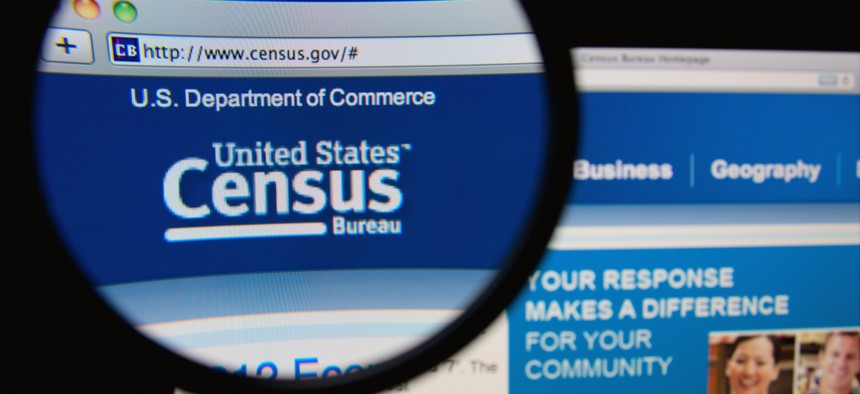Census Needs $4.5B More for 2020 Count, Commerce Secretary Says

Gil C/Shutterstock.com
The funds are crucial to getting the IT back on track, Wilbur Ross told lawmakers.
Commerce Secretary Wilbur Ross asked Congress for $4.3 billion in additional funds for the 2020 Census after a federal watchdog highlighted a number of shortcomings in the Census Bureau’s preparation for the decennial count of U.S. residents.
“We found the prior administration provided Congress and the public with an overly optimistic assessment of both the ease of implementing new technologies and the cost savings they would provide,” Ross said Wednesday at a House Oversight Committee hearing. Lower self-response rates, public distrust of government, and increased privacy and cybersecurity concerns will all contribute to higher costs, he said.
In October 2015, the bureau estimated the 2020 Census would cost roughly $12.5 billion after adjusting for inflation, but an independent review of the process determined the expenses would total closer to $15.6 billion and require another $1.2 billion in reserve funds. In his testimony, Ross stressed how the extra funding is crucial for improving management and oversight within the agency and getting delayed IT programs back on track.
» Get the best federal technology news and ideas delivered right to your inbox. Sign up here.
Next year the bureau is scheduled to run an end-to-end test as a trial run for the count, but a Government Accountability Office report published Wednesday showed the bureau has developed and tested less than 10 percent of the components needed for the trial run. Only four of the test’s 43 systems have been fully developed and tested, and 18 of the remaining 39 have yet to begin the deployment process.
GAO expects the IT costs for the 2020 Census to total at least $4.8 billion, up $1.4 billion from the bureau’s original estimate. The oversight body also designated the 2020 Census as a high-risk project and noted the bureau had so far implemented only 10 of the 33 recommendations the watchdog suggested over the last four years.
The hearing comes as government agencies find their data-collecting abilities increasingly impeded by budgetary and workforce constraints. Though agency spending typically begins to spike in the two years before the actual census begins, the current projections show the budget flat-lined. President Donald Trump increased the bureau’s funding only 1.8 percent in his fiscal 2018 budget proposal, and even Congress balked at the agency’s initial $12.5 billion estimate and allocated 10 percent less than the group said it needed between 2012 and 2017, the Washington Post reported.
The data collected through the census serves as the basis for not only government and business policies but also determines how many seats every state gets in Congress. Ross called the census “the bedrock upon which we construct our system of democratic representation,” and lawmakers on both sides of the aisle underscored the importance of making sure it was done fairly and accurately.
Despite many of its IT projects falling behind schedule, Ross remains optimistic in the bureau’s ability to utilize new technology to make the census more accurate and cost-effective if provided with the extra funding. Respondents can submit their 2020 Census forms online, and though he admits nothing is impenetrable, Ross said the agency will ensure the privacy and security of the data with the most “robust” systems to date.
He hopes the shift away from traditional pen-and-paper forms will make it easier to gather information on rural and low-income communities that may otherwise go under-reported and also combat a declining response rate.
The bureau estimates only about a 55 percent of people will respond to the census voluntarily. Commerce officials attribute the low rate to the public’s declining trust in the federal government and a fear that their data may get compromised.
Lawmakers also pointed out that minority groups may hesitate to respond due to some of the new administration’s harsh immigration policies. Ross assured the committee it would be illegal to use the data for anything of that nature.
NEXT STORY: Extra $3 billion might not solve all Census woes






